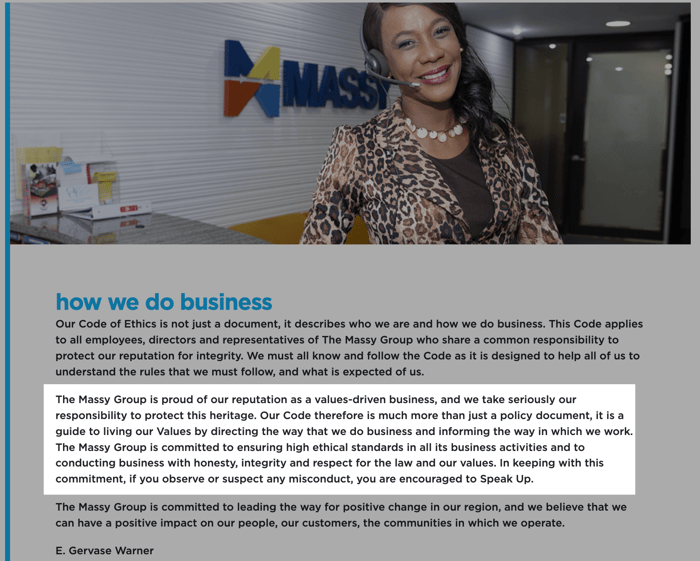Looking back at my first sales job in the automotive industry in 2003, I remember feeling an overwhelming sense of pride and excitement about the company, the brands, the people, etc. It was like I had landed my first real job and was ready to take on the world. As time passed, however, I noticed some things that left me uneasy. It was only a short time after my trust and love for the organisation changed, eventually resulting in my leaving in 2006.
What was the issue? It was the company's poor leadership, sales, and customer service ethics.
I witnessed customers having issues with their vehicles and the company failing to address them adequately. I saw staff members placed in positions where they were not honest with customers, and the most horrible part was leaders who failed to take responsibility and lead by example in challenging situations. The day-to-day stress salespeople faced from trying to make sales only added to the problem.
Within three years of starting my new job, the company had to change its name due to bad publicity; customers became fed up and staged a public media-supported protest in front of its offices. Sales stalled considerably, customers stopped coming, and staff eventually left. All because of one fundamental thing in business - ethics.
Fast-forward to 2023, and now with me being in a more senior consultative role in Trinidad and Tobago's sales industry, it troubles me to see that some of the same sales ethical issues I experienced then are happening today.
This article will discuss the importance of ethics in sales and why it is crucial for sales professionals, entrepreneurs, marketing and service leaders to prioritise ethical practices in their businesses.
---------------------------------------------------
What Is Sales Ethics?
Sales ethics refers to the principles and standards that guide ethical behaviour. It involves honest, transparent, fair, and respectful interactions with customers, colleagues, and stakeholders.
---------------------------------------------------
Ethical behaviour is fundamental to success in Trinidad and Tobago’s sales industry. Unfortunately, however, sometimes it’s overlooked, resulting in a negative reputation for sales professionals and the industry. It is a common theme that some people see salespeople as sleazy, underhanded, and untrustworthy, which has severe consequences for the entire sales community.
Integrity and honesty are two fundamental characteristics of a sales professional's career. It builds trust, fosters long-lasting relationships, and encourages repeat business.
On the other hand, poor sales ethics quickly tarnishes a sales professional's and organisation’s reputation, making it difficult to attract new customers and jeopardising their chances of growth and success.
6 Ways Poor Sales Ethics Impact The Image Of The Sales Professional
- Damage to the Reputation of an organisation or sales professional
- Loss of Credibility
- Negative Word-of-Mouth
- Employee Dissatisfaction and Turnover
- Legal and Regulatory Consequences
- Limited to no career or business growth
Sales leaders or managers play a crucial role in promoting ethical behaviour within their teams and the organisation. Leaders and managers create a culture of integrity and fairness by leading by example and holding sales professionals and themselves accountable for their actions. Enabling poor ethical practices damages the organisation's reputation and can result in legal issues and heavy financial losses.
6 Examples Of Poor Internal Sales Ethics: |
6 Examples Of Poor External Sales Ethics |
| Stealing Deals From Other Sales Reps | Deceptive Advertising |
| Lack of Transparency | High-Pressure Sales Tactics |
| Sabotaging Colleagues | Unfair or Hidden Fees |
| Misuse of Client Information | Misrepresentation of Product or Service |
| Dishonest Sales Reporting | Breach of Confidentiality |
| Non-Compete Agreement Violations | Unethical Competitive Practices |
Organisations must prioritise ethical practices in sales by establishing a clear code of conduct for sales, marketing, and service. Regular training sessions should reinforce these principles, and the sales team's performance should be monitored to ensure compliance. By fostering an ethical sales culture, organisations can improve customer satisfaction and ultimately increase revenue.
Seven suggestions on what organisations should do to foster good sales ethics.
- Develop a code of conduct: Organizations should develop a code of conduct that outlines ethical sales practices. This code should be communicated to all employees and should be regularly reviewed and updated.
- Provide training: Organizations should provide training to salespeople on ethical sales practices. This training should be provided to new hires and ongoing training for current employees. It should include real-life scenarios and case studies to help salespeople understand how to handle ethical dilemmas.
- Monitor salespeople's behaviour: Organizations should monitor salespeople's behaviour to ensure they adhere to ethical sales practices. This can include conducting regular audits, reviewing sales reports, and collecting customer feedback.
- Implement incentives based on ethical behaviour: Organizations can incentivise ethical behaviour by implementing incentives based on ethical behaviour. This can include bonuses or promotions for salespeople who adhere to ethical sales practices.
- Foster a culture of ethics: Organizations should foster a culture of ethics by promoting open communication and transparency. Employees should feel comfortable reporting unethical behaviour without fear of retaliation.
- Set ethical expectations from the top: Ethical behaviour should be modelled from the top down. Executives and leaders should lead by example and adhere to ethical sales practices.
- Address unethical behaviour: Organizations should have a clear process for addressing unethical behaviour. This should include disciplinary action for employees who engage in unethical behaviour.

Ethics Can Be A Competitive Advantage
Ethics in sales are critical to the overall success of the organisation. A reputation for ethical behaviour sets a company apart from its competitors and earns the respect and loyalty of customers. Furthermore, ethical sales practices contribute to a positive company culture where employees feel valued and empowered, leading to increased productivity and higher employee retention rates.
Closing Thoughts
In conclusion, the importance of ethics in sales and business cannot be overstated. Sales professionals, sales leaders, and organisations must recognise the long-term benefits of ethical behaviour and foster a culture of integrity and fairness; sales professionals can achieve sales success while contributing to a positive and thriving business environment.
✋🏾 Did You Find This Insightful? Subscribe Below to Get More Content Like This 👇🏾




COMMENTS